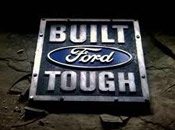2007 Ford Explorer Insurance Quotes – 9 Savings Tips
Drivers have lots of choices when trying to find low-cost Ford Explorer insurance. You can either waste hours contacting agents trying to get quotes or save time using the internet to find the lowest rates. There are both good and bad ways to find insurance online and you need to know the quickest way to compare rates for your Ford and locate the cheapest rates either online or from local insurance agents.
Consumers need to take a look at other company’s rates on a regular basis because insurance rates change regularly. Even if you think you had the best deal on Explorer insurance two years ago there may be better deals available now. Forget all the misinformation about insurance because we’re going to demonstrate the fastest way to save money, get proper deductibles and limits, all at the lowest rate.
Comprehensive Car Insurance Comparison
There are several ways to compare Ford Explorer car insurance quotes, but some are less time-consuming than others. You could waste a few hours discussing policy coverages with agents in your area, or you can stay home and use the internet to get prices fast.
Most major companies take part in a program that enables customers to send in one quote, and each participating company provides a quote. This prevents consumers from doing repetitive form submissions for every car insurance company.
To enter your information into the quoting system, click here to open in new window.
The only downside to getting quotes like this is that you can’t choose which companies you will receive quotes from. If you wish to select specific providers to compare rates, we put together a list of car insurance companies in your area. View list of insurance companies.
It’s up to you how you get prices quotes, just double check that you are using apples-to-apples information with each company. If you compare mixed coverages it’s impossible to make a fair comparison for your Ford Explorer.
Tailor your coverage to you
When buying the right insurance coverage for your vehicles, there really is no “perfect” insurance plan. Each situation is unique.
These are some specific questions may help highlight if you may require specific advice.
- When should I drop full coverage on my 2007 Ford Explorer?
- Why am I required to get a high-risk car insurance policy?
- Is business property covered if stolen from my car?
- What happens if I owe more than my 2007 Ford Explorer is worth?
- How high should deductibles be on a 2007 Ford Explorer?
- When should my teen driver be added to my policy?
- Should I buy only the required minimum liability coverage?
- Does my 2007 Ford Explorer need full coverage?
- Should I drop comprehensive coverage on older vehicles?
If you don’t know the answers to these questions but one or more may apply to you, you might consider talking to an insurance agent. To find an agent in your area, simply complete this short form. It is quick, free and may give you better protection.
Insurance coverage breakdown
Understanding the coverages of insurance helps when choosing the best coverages for your vehicles. The terms used in a policy can be ambiguous and coverage can change by endorsement.
Collision protection
Collision coverage pays to fix your vehicle from damage from colliding with a stationary object or other vehicle. You have to pay a deductible then your collision coverage will kick in.
Collision can pay for things such as sideswiping another vehicle, scraping a guard rail and sustaining damage from a pot hole. This coverage can be expensive, so analyze the benefit of dropping coverage from vehicles that are older. It’s also possible to raise the deductible in order to get cheaper collision rates.
Insurance for medical payments
Coverage for medical payments and/or PIP provide coverage for short-term medical expenses like surgery, X-ray expenses, doctor visits, prosthetic devices and dental work. They are used to cover expenses not covered by your health insurance policy or if you lack health insurance entirely. They cover all vehicle occupants and also covers getting struck while a pedestrian. PIP is not available in all states but it provides additional coverages not offered by medical payments coverage
Uninsured Motorist or Underinsured Motorist insurance
This coverage provides protection when other motorists are uninsured or don’t have enough coverage. Covered losses include medical payments for you and your occupants and damage to your Ford Explorer.
Due to the fact that many drivers carry very low liability coverage limits, their limits can quickly be used up. So UM/UIM coverage is a good idea.
Comprehensive coverage (or Other than Collision)
This coverage covers damage from a wide range of events other than collision. A deductible will apply and then insurance will cover the rest of the damage.
Comprehensive coverage protects against things such as falling objects, damage from flooding, theft and fire damage. The maximum payout your insurance company will pay is the market value of your vehicle, so if your deductible is as high as the vehicle’s value consider dropping full coverage.
Liability insurance
Liability coverage will cover damage or injury you incur to other people or property. This coverage protects you from claims by other people, and doesn’t cover your own vehicle damage or injuries.
Liability coverage has three limits: bodily injury for each person injured, bodily injury for the entire accident and a property damage limit. You might see policy limits of 25/50/25 which means $25,000 in coverage for each person’s injuries, a total of $50,000 of bodily injury coverage per accident, and a limit of $25,000 paid for damaged property.
Liability can pay for claims like structural damage, loss of income and court costs. How much liability should you purchase? That is a personal decision, but buy as high a limit as you can afford.

